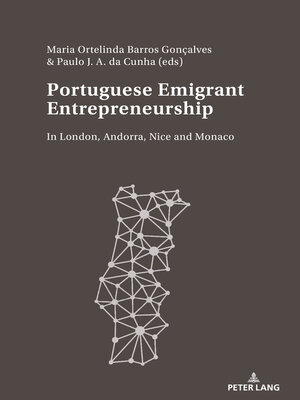Portuguese Emigrant Entrepreneurship
ebook ∣ in London, Andorra, Nice and Monaco
By Maria Ortelinda Barros Gonçalves

Sign up to save your library
With an OverDrive account, you can save your favorite libraries for at-a-glance information about availability. Find out more about OverDrive accounts.
Find this title in Libby, the library reading app by OverDrive.



Search for a digital library with this title
Title found at these libraries:
| Library Name | Distance |
|---|---|
| Loading... |
After addressing the "state of the art" about migrant entrepreneurship, and reviewing the literature and methodological description, the reader is invited to "travel", separately, through the various territories analyzed, in the sense of an individualized perception and focused to the regional scale, to which follows a final and conclusive analysis of the set of the diverse territories. Concomitantly, a brief appointment is made on the virtual presence of the Portuguese entrepreneurs in internet, namely in social networks, giving the reader a more deterritorialized perspective on the diaspora.
The emigration, always seen throughout History as a kind of social "exhaust valve" in territories in crisis, might also be seen as a huge opportunity for the depopulated regions, or even for the increase of the inner European market, so economically shaken in the last years and without consistent solutions at sight.
It is also this intention that we intend to consolidate, through a better understanding of the history of migrations and the full perception of the impacts and quantification of the real contributions of immigrants (also) to the recipient economies.
The emigration, always seen throughout History as a kind of social "exhaust valve" in territories in crisis, might also be seen as a huge opportunity for the depopulated regions, or even for the increase of the inner European market, so economically shaken in the last years and without consistent solutions at sight.
It is also this intention that we intend to consolidate, through a better understanding of the history of migrations and the full perception of the impacts and quantification of the real contributions of immigrants (also) to the recipient economies.







